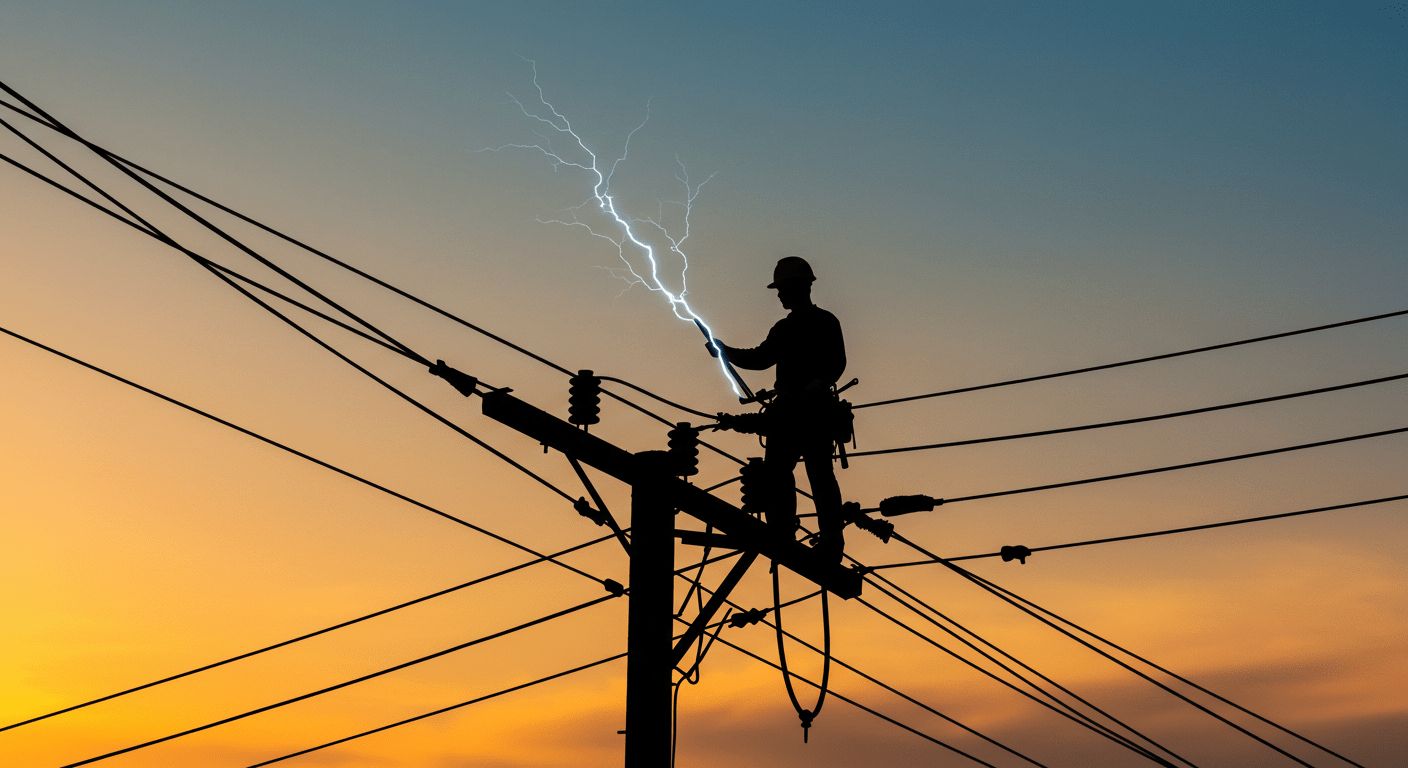IBEW: A Comprehensive Guide to the International Brotherhood of Electrical Workers

The International Brotherhood of Electrical Workers (IBEW) is one of the most prominent labor unions in North America, representing electrical workers across various sectors. From powerline technicians to electricians, the IBEW provides its members with exceptional opportunities for career advancement, job security, and fair wages. If you’re interested in joining the IBEW, learning about its apprenticeship programs, or exploring employment opportunities, this guide will give you everything you need to know.
In This Article We Will Discuss:
- What is IBEW?
- What the IBEW Does for Its Members
- IBEW Apprenticeship Programs
- IBEW Locals
- IBEW Employment Opportunities
- IBEW Wages and Pay Scale
- The IBEW Aptitude Test and Interview Process
- IBEW and Career Development
- Why Join the IBEW?
What is IBEW?
The International Brotherhood of Electrical Workers (IBEW) was founded in 1891 to advocate for workers in the electrical industry. Today, the IBEW represents over 775,000 members in the U.S. and Canada, fighting for fair wages, workplace safety, and strong benefits.
What the IBEW Does for Its Members
- Advocacy and Representation: The IBEW negotiates collective bargaining agreements that ensure competitive pay and excellent benefits for its members.
- Training and Apprenticeships: The union provides top-tier education and skill development through its apprenticeship programs.
- Job Security: Access to a vast job network through local chapters and the IBEW job board ensures steady employment opportunities.
The IBEW is much more than just a union—it’s a community that fosters growth and opportunity in the electrical industry.
IBEW Apprenticeship Programs
One of the most popular pathways into the electrical trade is through an IBEW apprenticeship. These programs combine classroom instruction with on-the-job training, providing apprentices with the skills they need to become licensed electricians.
How to Apply for an IBEW Apprenticeship
- Research Your Local IBEW Chapter\ Identify your nearest local, such as IBEW Local 11 or IBEW 367, and check their specific application requirements.
- Meet Eligibility Requirements\
Most programs require:
- A high school diploma or GED.
- Completion of an IBEW aptitude test, which assesses math, reading comprehension, and basic electrical knowledge.
- Submit Your Application\ You’ll need to fill out an application, often including an IBEW interview form, which evaluates your interest and potential in the electrical field.
- Prepare for the IBEW Aptitude Test\ The aptitude test is crucial for entry. Focus on brushing up your algebra and reading comprehension skills to succeed.
- Begin Your ApprenticeshipOnce accepted, apprentices typically undergo 4-5 years of training, including 144 hours of classroom instruction and 2,000 hours of on-the-job training annually.
IBEW Locals
The IBEW is organized into local unions that represent workers in specific geographic regions or industries. Each local union has unique resources, benefits, and employment opportunities.
Examples of Large IBEW Locals:
- IBEW Local 11: Specializes in green energy projects like solar energy and EV infrastructure in Southern California.
- IBEW 367: Focuses on powerline maintenance and industrial work in Maine, with a strong emphasis on community involvement.
IBEW Employment Opportunities
One of the key benefits of joining the IBEW is access to a vast network of job opportunities. Whether you’re seeking your first job in the electrical field or looking for career advancement, the IBEW job board is an invaluable resource.
Employment Opportunities by Sector
- Construction: Work on residential, commercial, and industrial projects.
- Telecommunications: Install and maintain systems for communication networks.
- Power Generation and Distribution: Support infrastructure for electrical grids and renewable energy sources.
IBEW Wages and Pay Scale
IBEW members enjoy competitive wages that reflect their skills and experience. The IBEW pay scale is determined by collective bargaining agreements negotiated between local unions and employers.
How Much Do IBEW Members Earn?
- Apprentices: Start earning approximately 50-60% of a journeyman’s pay, increasing as they progress through training.
- Journeymen: Average hourly rates range from $30 to $50, depending on location and industry.
- Specialized Roles: Electricians in high-demand areas like renewable energy or telecommunications may earn even more.
The IBEW Aptitude Test and Interview Process
The IBEW application process includes a standardized aptitude test and interview to assess candidates’ potential.
Aptitude Test Focus Areas
- Algebra and geometry.
- Reading comprehension.
Interview Goals
- Evaluate your skills and interest in the electrical field.
- Assess your understanding of union values and collective work.
IBEW and Career Development
The IBEW emphasizes lifelong learning and career growth:
- Continuing Education: Stay competitive with courses on new technologies.
- Leadership Training: Prepare for supervisory roles.
- Specialized Certifications: Gain credentials in areas like industrial automation or fiber optics.
Why Join the IBEW?
Joining the IBEW provides:
- Advocacy: Representation in collective bargaining.
- Networking: Access to a network of skilled professionals.
- Community: Belong to a union dedicated to worker success.
Conclusion
The International Brotherhood of Electrical Workers (IBEW) is more than a labor union—it’s a pathway to a fulfilling career in the electrical industry. With top-tier training, competitive wages, and a vast network of opportunities, the IBEW empowers workers to achieve their professional goals. Take the first step toward joining this supportive and dynamic community today.

.jpg)
